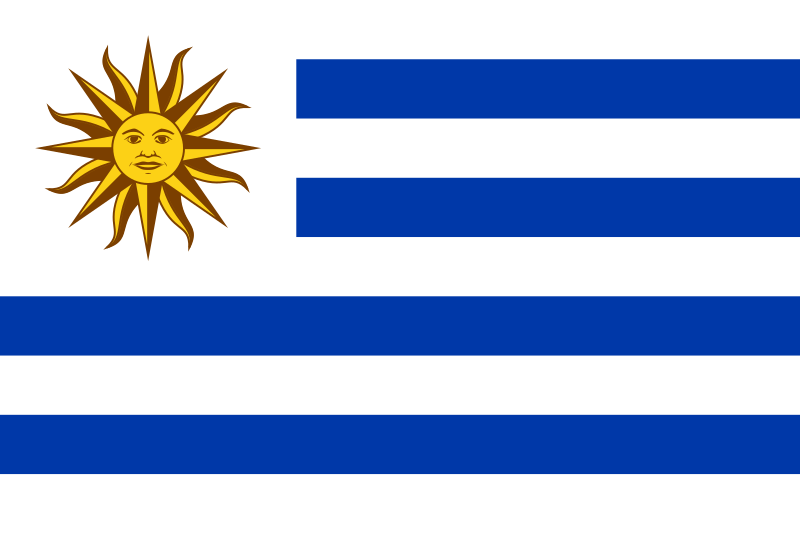 Uruguay, officially the Oriental Republic of Uruguay (sometimes rendered as the Eastern Republic of Uruguay in the English language; Spanish: República Oriental del Uruguay,pronounced [reˈpuβlika oɾjenˈtal del uɾuˈɣwai]), is a country located in the southeastern part of South America. It is home to some 3.5 million people, of whom 1.4 million live in the capital Montevideo and its metropolitan area. An estimated 88% of the population are of European descent.
Uruguay, officially the Oriental Republic of Uruguay (sometimes rendered as the Eastern Republic of Uruguay in the English language; Spanish: República Oriental del Uruguay,pronounced [reˈpuβlika oɾjenˈtal del uɾuˈɣwai]), is a country located in the southeastern part of South America. It is home to some 3.5 million people, of whom 1.4 million live in the capital Montevideo and its metropolitan area. An estimated 88% of the population are of European descent.
Uruguay’s only land border is with Rio Grande do Sul, Brazil, to the north. To the west lies the Uruguay River, to the southwest lies the estuary of Río de la Plata, with Argentina only a short commute across the banks of either of these bodies of water, while to the southeast lies the southern part of the Atlantic Ocean. Uruguay, with an area of approximately 176 thousand km2, is the second smallest nation of South America in area after Suriname.
Colonia del Sacramento, one of Uruguay’s oldest European settlements, was founded by the Portuguese in 1680. Montevideo was founded by the Spanish in the early 18th century as a military stronghold. Uruguay won its independence in 1811–1828 following a three-way struggle among Spain, Argentina and Brazil. It is a constitutional democracy, where the president fulfills the roles of both head of state and head of government.
Uruguay is one of the most economically developed countries in South America, with a high GDP per capita and the 50th highest quality of life in the world. The economy is largely based on agriculture (making up 10% of GDP and the most substantial export) and the state sector. According to Transparency International, Uruguay is rated as the least corrupt country in Latin America (along with Chile), with its political and labour conditions being among the freest on the continent.
In 2007, it became the first Latin American country to legalize same-sex and different-sex civil unions at a national level.

Notes from Wikipedia








